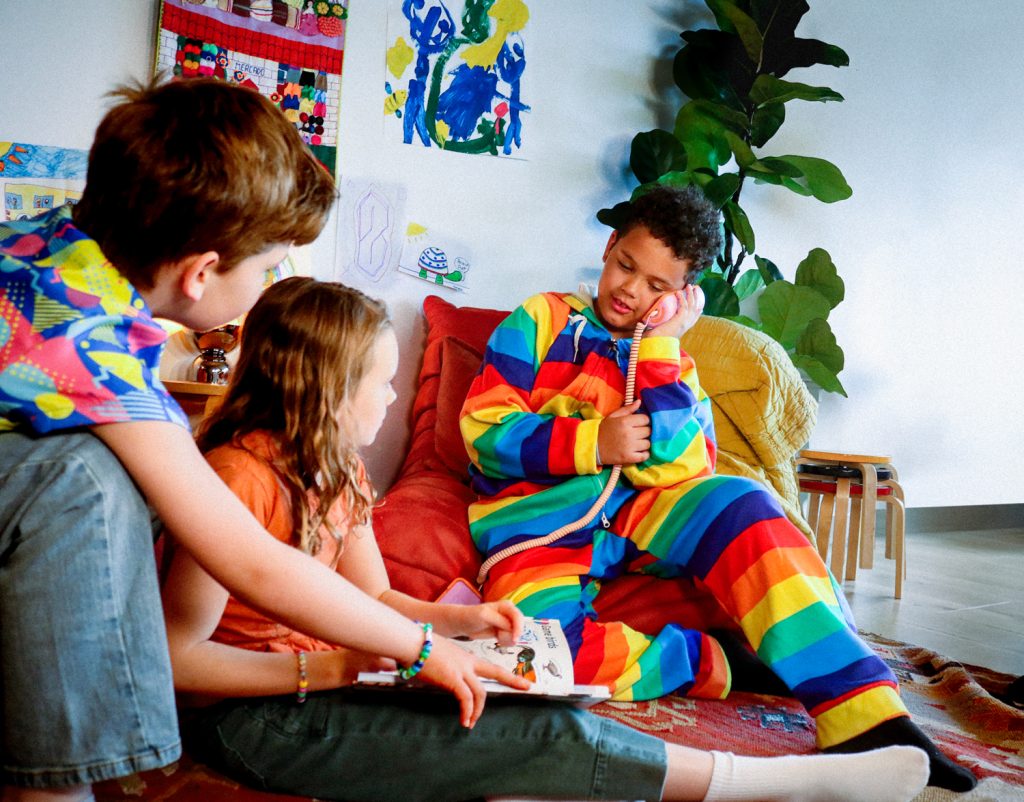Tin Can Photos: Reconnecting Kids in a Screen-Free World
In an era dominated by smartphones and digital screens, a Seattle-based startup called Tin Can has tapped into parents’ growing concerns about technology’s impact on childhood. The company’s WiFi-enabled landline-style phones, shaped like colorful oversized tin cans, offer a refreshingly simple alternative for children’s communication. This innovative approach has not only captivated families across the country but has also attracted $3.5 million in venture capital from investors including PSL Ventures, Newfund Capital, Mother Ventures, and Solid Foundations. Greg Gottesman, managing director at PSL, describes Tin Can as “one of the fastest growing and most viral businesses” he’s encountered in over 25 years of venture investing—a testament to how deeply the product resonates with today’s families seeking balance in a digital world.
What began as a personal project by co-founder and CEO Chet Kittleson and his team has rapidly evolved into a phenomenon. The 7-person company quickly sold out its first two manufacturing runs and is now accepting pre-orders for December deliveries. The appeal is straightforward yet powerful: Tin Can phones allow children to experience the joy of voice communication without the complications and risks associated with smartphones. “We started by building a phone just for our own kids, and it’s been amazing to see that snowball into something much bigger that clearly resonates with families everywhere,” Kittleson explains. This growth reflects a significant cultural shift, as parents increasingly search for ways to grant their children independence without prematurely exposing them to the internet’s complexities and dangers.
The timing of Tin Can’s emergence couldn’t be more relevant. With mounting research highlighting concerns about the negative effects of excessive screen time and social media on children’s mental health, attention spans, and social development, many families are actively seeking alternatives. Tin Can offers a solution that feels both nostalgic and novel—combining the warmth of traditional voice calls with modern safety features parents demand. Priced at $75 per device, the phones are sold directly to families with two available calling plans: a free option that connects to other Tin Can devices, or a $9.99 monthly subscription that enables calls to parent-approved external numbers including cell phones and landlines. This straightforward pricing model makes the technology accessible while giving parents complete control over their children’s communication environment.
Safety and simplicity are at the core of Tin Can’s design philosophy. A companion mobile app allows parents to manage contacts, ensuring that only approved numbers can reach their children—effectively eliminating concerns about robocalls or communication with strangers. Additional features include customizable quiet hours, voicemail capabilities (charmingly dubbed an “answering machine”), and optional 911 emergency calling that parents can enable through the app. Beyond these practical functions, Tin Can incorporates delightful surprises that appeal to children’s sense of wonder and playfulness. Kids can dial “HAHA” to hear a daily joke or “WORD” for a vocabulary-building definition, making the device both educational and entertaining. “Kids love it because it feels like their very own phone,” Kittleson notes, highlighting how the product successfully balances parental peace of mind with children’s desire for autonomy.
The impact of Tin Can extends beyond just providing a safer communication alternative—it’s changing the quality of conversations themselves. Parents and grandparents report that calls made using Tin Can phones tend to be “more thoughtful, more focused” compared to the often chaotic nature of video calls that frequently devolve into “dizzying FaceTime tours of the living room.” This observation points to a deeper benefit of the technology: by removing visual distractions and the multitasking capabilities of smartphones, Tin Can encourages children to develop meaningful communication skills through active listening and verbal expression. The company was founded by Kittleson along with Graeme Davies and Max Blumen, former colleagues at the Seattle real estate startup Far Homes, which closed its doors last year. Their pivot to creating a product that addresses a fundamental concern for modern families demonstrates remarkable entrepreneurial adaptability.
Tin Can’s mission-driven approach has resonated strongly with both customers and investors. Vivek Ladsariya, managing director at PSL, emphasizes how this commitment “shows in the product, messaging, and branding and it’s why customers love them.” The core vision—allowing children to experience the richness of an analog world before navigating digital complexities—strikes a chord with parents who increasingly recognize the value of delaying smartphone exposure. As digital natives themselves, Tin Can’s founders understand the balance modern families are trying to strike. They’ve created more than just a product; they’ve launched a movement that acknowledges the benefits of technology while preserving childhood’s simpler pleasures. In a world where screens dominate our attention from increasingly younger ages, Tin Can offers a thoughtful pause—a chance for children to develop social skills, independence, and creativity through the simple joy of person-to-person conversation, all while giving parents the security and control they need in today’s connected world.














